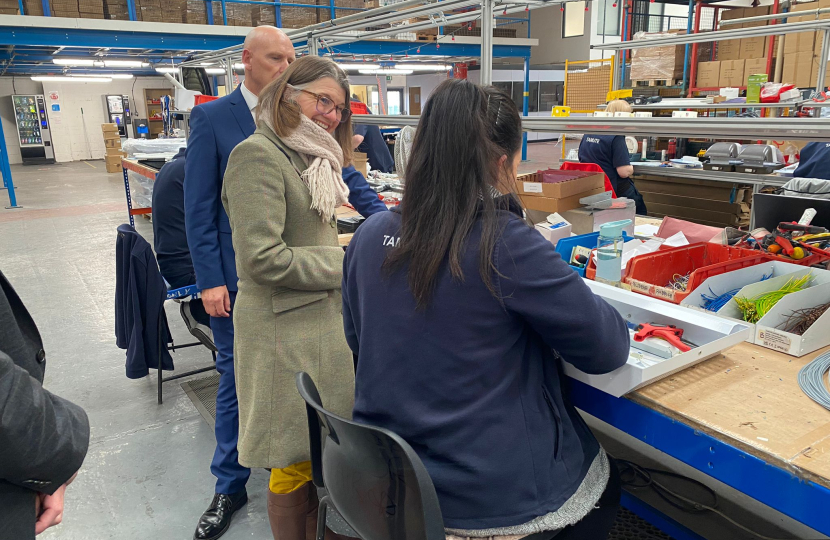
Rachel has welcomed reforms to toughen up the welfare system to tackle the “alarming growth in sick note culture.”
The Government has taken hugely significant steps to reform the broken welfare system inherited from Labour by putting work at the heart of welfare through Universal Credit and boosting pay by cutting taxes for 27 million working people.
However, post-pandemic, the Government is now going further to ensure the welfare system is working for both claimants and taxpayers.
Announced today (April 19th), the Government has set out new reforms to ensure the welfare system supports more people off benefits and into work. The Government will:
- Reform how we assess someone’s capability to work. Over the last decade, the world of work has changed, yet the way the welfare system determines people’s fitness to work has not. Under the Work Capability Assessment, too many people are being written off as unable to work. That is why the Government is reforming the system so that benefit recipients with less severe health conditions are expected to engage with employment. The OBR has confirmed that this will reduce the number of people assessed as not needing to prepare for work by 424,000 by 2028-29.
- Improve the fit note system to stop people being written off as not fit for work by default. The Government will instead design a new system where each fit note conversation starts with an assumption of what work people can do with the right support in place, rather than focusing on what they can’t do. A call for evidence is being published on how the current process works and how it can better support people with health conditions to start, stay, and succeed in work.
- Review our disability benefit system to ensure that our support is fairly and accurately targeted at those who need it most. The Government will bring forward a consultation on the Personal Independence Payment (PIP). This will look at the accuracy of PIP assessments, making the system more individually tailored, and ensuring that it is more joined up with local services.
- Change the rules so that someone working less than half of a full-time week will have to look for more work. Before 2022 someone could work only 9 hours a week and remain on benefits without being expected to look for more work. From next month, individuals will be required to work twice as much (18 hours).
- Strengthen our sanctions regime to ensure unemployment benefit remain a safety net not a lifestyle choice. Anyone who does not comply with conditions set by their Work Coach, including accepting an available job will, after 12 months, haver their claim closed, and benefits removed entirely.
- Invest £6 billion in employment support to help people into work. This includes the Universal Support programme, which will match people with a personal advisor who works with local employers to identify jobs, and WorkWell, a new scheme connecting disabled people to the work and health support. The Government’s new occupational health framework will provide expert advice and support to prevent people leaving work due to illness.
- Accelerate the final rollout of Universal Credit, moving all those left on outdated systems, such as ESA, onto the simpler dynamic benefit which eliminates the choice between work and welfare.
- Continue our zero-tolerance approach to fraud. The Government will introduce a Fraud Bill in the next Parliament to bring DWP’s powers in line with that of HMRC so we can treat benefit fraud like we do tax fraud.
Rachel said: “This is an issue I have been speaking out on for some time now because I’ve been deeply concerned about the alarming growth in sick note culture which has seen more and more people being written off work unnecessarily – leading to our country’s welfare bill growing at an unsustainable rate.
“After Covid it is now time to tackle the unacceptable rise in people being signed off work when, for the vast majority, work is the best therapy. My background as a counsellor, qualified psychologist and current evidence confirms this approach is the right one.
“We will of course continue to ensure we have a system that provides vital support for those who need it most, ensuring they are supported to live with dignity and independence, but we are simply making sure that everyone who can work is expected and supported to do so. It’s basic fairness and common sense.
“It’s very important to be brave enough to tackle these problems especially in the face of attacks from the left and progressives. Hard problems demand serious thinking, rather than taking the easy route. That route only hurts more people in the long-term.”



